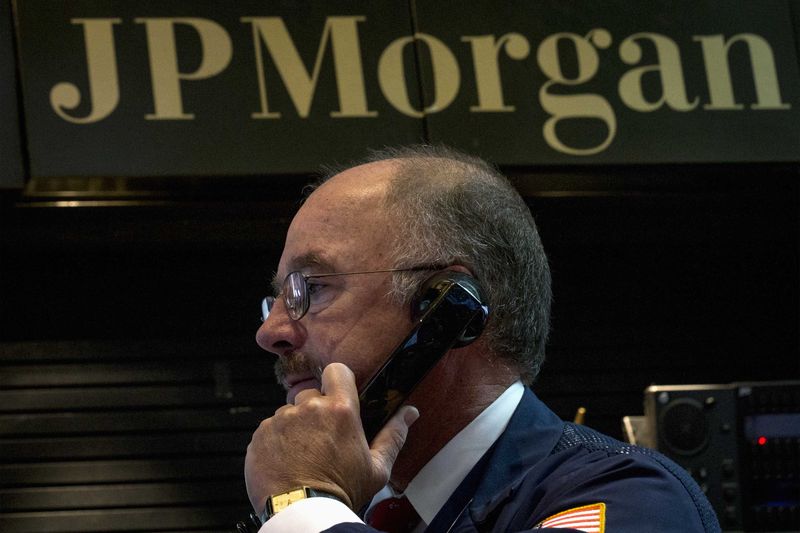Gold prices just lower; monthly gains on track
Shares of JPMorgan (NYSE:JPM) are down roughly 2% after the Wall Street bank reported worse-than-expected investment banking revenue.
JPMorgan reported a Q1 EPS of $2.63, down from $4.50 in the year-ago period and below the consensus estimates of $2.72 per share. Adjusted revenue came in at $31.59 billion, down 4.6% YoY and beating the consensus projection of $31.44 billion.
The bank reported $1.07 trillion in loans in the quarter, up 6.1% YoY and almost in line with the expected $1.08 trillion. Total deposits came in at $2.56 trillion, up 12% YoY and above analyst expectations of $2.45 trillion. Compensation expenses were reported at $10.79 billion, missing the consensus projection of $10.98 billion.
Return on equity stood at 13% in the period, compared to the estimated 12.5%. Return on tangible common equity was 16%, above the expected 15.7%. JPMorgan reported assets under management of $2.96 trillion, also below the $3.07 trillion consensus.
Going forward, the bank expects 2022 adjusted expenses of roughly $77 billion. JPM anticipates net income interest (NII) excluding markets of more than $53 billion, compared to the previous outlook of $50 billion.
JPMorgan also confirmed a new share repurchase plan of $30 billion, which will come into effect on May 1.
Results also reflect $524 million losses “within Credit Adjustments & Other in CIB driven by funding spread widening as well as credit valuation adjustments relating to both increases in commodities exposures and markdowns of derivatives receivables from Russia-associated counterparties ($0.13 decrease in EPS),” the bank said.
Goldman Sachs analyst Richard Ramsden commented:
“We estimate that the core ROTCE came in at 18.5% for the quarter versus our expectations of 16.2%. All in, we believe that the market will see these results as broadly in-line, with stronger trading results, NII and the margin, but significantly more pressure on capital ratios, which should weigh on capital return,” Ramsden wrote in a memo.
Seaport analyst Jim Mitchell says that shares are down on “negative implications for the buyback and more cautious view on the macro outlook.”
By Senad Karaahmetovic
